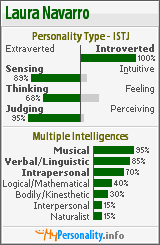I am listening to The Pursuit of Holiness by Jerry Bridges. It’s a book I’ve read in the past and it happens to be the free audio book from Christianaudio.com this month. So, I listen to a chapter in the morning a few times a week and then I go back and read that same chapter later that day or the next. There is plenty to think about and meditate on in this book.
The book progresses from the broad and necessary truths to the practical responses to those truth. Chapter 2 starts it off by talking about the holiness of God. Having just read the book The Holiness of God by R.C. Sproul in Nov/Dec this was a brief refresher.
Bridges reflects that the holiness of God means He is completely without evil and perfectly consistent with His character. God doesn’t struggle to know what is right or to do what is right. This should reassure us, as we can trust that God is always perfect and just in His actions toward us. Bridges admits we are often tempted to accuse God of being unfair. My Bible reading plan has me in Job again and he is complaining that he would rather be dead, in fact rather never even have been born. Much later, of course, Job stops talking such foolishness.
From there Bridges talks about how dangerous it is to imply that God is not holy. He quotes Stephen Charnock who said
It is less injury to Him to deny His being, than to deny the purity of it; the one makes Him no God, the other a deformed, unlovely, and a detestable God…he that saith God is not holy speaks much worse than he that saith there is no God at all.
Now comes the rub. Not only is God holy but He calls us to be holy. Our actions, motives, everything. One sentence that Bridges wrote really stood out for me.
Probably none of us ever imagines that God is actively soliciting us to do evil, but we may feel that God has put us in a situation where we have no choice.
The biblical reference is that of Saul making the sacrifice himself because Samuel didn’t come when he said he would. (1 Sam 13:8-14) That chapter just came up in my reading plan yesterday. Saul justified his actions, not realizing that his performing that action was much worse than anything that would happen if Samuel was late. But God is holy and He hates sin. We must learn to hate sin too. This can be difficult, especially those little sins we secretly love and hold on to.
Another form this can take is deciding what is actually “righteous anger” and what is a sinful anger and desire for vengeance that should be left to the Lord. There are times where it seems wrong to forgive someone who has done something terrible and hurtful. And there are consequences that should not be avoided. But holding on to our anger and justifying it by the behavior of the other person is wrong. An example for me recently would be anger at my brother-in-law David. Seeing the pain he is causing his family and the mean way he is treating them (is ignoring someone a form of treatment?) makes me so angry some times. But I have learned from prior experience that when I get angry at David, I must immediately stop and pray for him. This serves two purposes. It lifts up a man who needs God’s salvation, and it reminds me that whatever God does (either turning David’s heart or punishing him for his sins) is better than anything I can come up with. It makes my desires for vengeance or pain or a deep recognition of just how wrong he is look small and petty. David is both safer and in much more danger in the hands of a holy God.
On a related note, Bridges then makes an interesting point that the Bible shows that “God may judge the sins of His saints more severely than those of the world.” King David, for his adultery and murder, was beset with violence and turmoil the rest of his reign. Moses, for one act of unbelief, was forbidden to enter the Promise Land.
Another point of interest in the chapter included how we think we will sin a little and then ask for forgiveness later. Not only what Paul was so indignant about when he asked if anyone really thought they should sin the more so there would be more grace in their forgiveness. (Romans 6:1) But the even worse step of just thinking that we can sin now knowing we’ll be forgiven, not even thinking of the cost of the grace we are taking for granted.
The next chapter states that holiness is not an option and gives 4 reasons:
- holiness is required for fellowship with God – He hates sin so to be in fellowship with Him we must be serious about sin and not continue to cherish a sin once it is revealed to us
- holiness is required for our own well being – He disciplines us because He loves us
- holiness is necessary for effective service to God – the Holy Spirit is grieved by a life of ongoing sin
- holiness is necessary for our assurance of salvation – there will be fruit of our salvation evident in our lives
Living a life of holiness is a struggle and we can begin to see some dark and dirty corners of our own life when we pursue holiness earnestly. That’s why the next chapter is about the good news!



